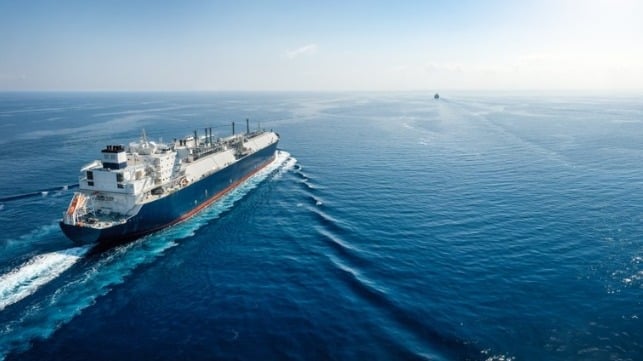Op-Ed: Facing the Fuel Facts About LNG

The current drive to decarbonize the maritime industry strikes me as a similarly important and dramatic change to that which Malcom McLean organized with his sailing of the Ideal X in 1956. The almost unbelievable growth we have seen in international trade, sparked by the now ubiquitous container, required a strong vision of the future combined with a focused, unrelenting forward drive. As the container and intermodal industries grew, everyone had much the same concentrated and almost prophetic view of what had to be accomplished to satisfy the entrepreneurial spirit created by Mr. McLean.
Now that we are in a new era of change to decarbonize the maritime industry, we need the same focus and vision of the future to ensure success. Great challenges require great people like Malcolm McLean with strong and realistic leadership. Like the growth of international trade facilitated by the container, challenges like decarbonization can only be achieved by identifying real benefits over the long term and showing a path forward that is realistic and practical. Today, when we evaluate the past 10 years or so of the decarbonization journey, we need to recognize and admit that we have all too often been diverted from a strong yet realistic vision by the proverbial “shiny object.”
We know, and have known for years, that most alternative fuels are unlikely to be available in the quantities needed by shipping anytime soon. The exception is methane in the form of LNG. We know that liquid fuels and gases are often difficult to handle and can be unsafe for many reasons. Years and decades of experience handling these products is required to ensure the wellbeing of our seafarers, longshoremen and women, as well as those residing in or near port communities. LNG has a safety record that spans many decades. The energy value of fuels is also a critical matter. Not all fuels are created equal and many have energy densities that require a vessel to have almost double the tankage. This means more fuel and less revenue-generating capacity. Shipowners want to carry cargo, not fuel. Again here, methane as LNG is the standard others are measured against.
With these facts, why have our industry and regulators been diverted from what might seem to be the focus and strong direction we need to realize local emissions and carbon reduction? In today’s modern world, opinions and ideas are available as never before. Opinions are often taken for fact and widely distributed in media and the Internet. Academics need to “publish or perish” and sometimes perform research based on unrealistic assumptions. Regulators and governments have a myriad of topics and concerns they need to deal with daily. Being pulled in many directions at once can and does create issues and concerns.
With this backdrop, and when considering low and zero carbon fuels, our industry must ask practical questions and demand clear, well-supported and candid answers:
- Approximately three of the hundreds of ‘LNG-ready’ ships were actually converted to use LNG. What does ‘methanol-ready’ and ‘ammonia-ready’ actually mean?
- When we say ‘methanol’ or ‘ammonia’ – is that a grey (fossil) or green (bio/e-) molecule?
- What fuel will be used while waiting for adequate supplies of green molecules?
- How energy-dense is the fuel and how will this impact a vessel’s revenue cargo-carrying capacity?
- Do future ‘bunkering locations’ include commodity infrastructure that would require significant investment to develop or convert?
- How reliable are the engine technologies, safety standards and bunkering supplies today?

that matters most
Get the latest maritime news delivered to your inbox daily.
Like Mr. McLean’s containerization, decarbonization demands we focus on the practical and realistic, face the fuel facts, and not get distracted by shiny objects. The reality is that, without a clear focus, no one will use any alternative fuel, they will simply continue with the status quo - heavy fuel oils.
Peter Keller is the chairman of SEA-LNG and the former executive vice president of TOTE, Inc. He has served on the boards of the Pacific Maritime Association (PMA), the Pacific Maritime Shipping Association and the United States Maritime Exchange (USMX), and he was inducted into the International Maritime Hall of Fame in 2006.
The opinions expressed herein are the author's and not necessarily those of The Maritime Executive.
